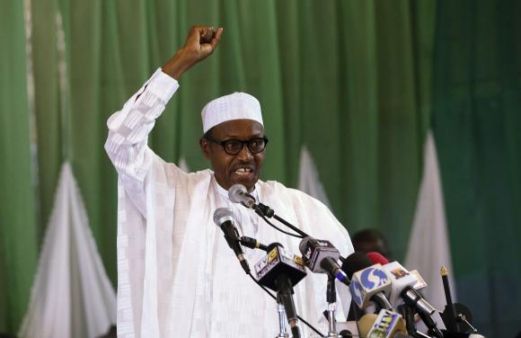Boko Haram is not interested in peace - Nigerian opposition candidate

The main opposition candidate in Nigeria's presidential elections has ruled out peace negotiations with terror group Boko Haram.
"Boko Haram is not interested in peace - if they are interested in peace how can they kill 13,000 Nigerians?" All Progressives Congress (APC) candidate and former military ruler of Nigeria Muhammadu Buhari told BBC.
Buhari also told BBC that he was "fit as a fiddle," dismissing reports of ill health.
Buhari's health was recently put under the spotlight after Ekiti State Governor Ayo Fayose claimed in a statement that Buhari was not on a state visit in London but there for a hospital treatment. APC presidential campaign organisation spokesperson Mallam Garba Shehu dismissed Fayose's allegations, stating that Buhari is "hale and hearty" and that Buhari was in London for a "major engagement" at Chatham House.
Buhari is considered the strongest opposition to incumbent President Goodluck Jonathan, who belongs to the People's Democratic Party, in what is thought to be the most contested election in Nigeria's history since the end of military rule.
Nigeria's government was ruled by two military juntas, the First and Second Junta, from 1966 to 1998. Buhari served as Chairman of the Supreme Military Council in the Second Junta from 1983 until 1985 until he was removed from the position by General Ibrahim Babangida in a coup.
Military rule ended in 1999 when Olusegun Obasanjo won the first democratic elections.
The Nigerian people were due to vote for a new President on February 14 but the elections were postponed because of the threat of Boko Haram, whose leader Abubakr Shekau swore to disrupt the polls with attacks. The group threatened the state capital of Maiduguri in the Borno state. Millions of Nigerians may not be able to vote if Boko Haram launches an attack to coincide with the elections.
The elections have been re-scheduled to take place on March 28 to allow Nigeria and its allies in the joint multinational task force to secure the northeastern regions and restore peace.
The multi-national task force is an 8,000-strong combined military force composed of soldiers assembled from Chad, Nigeria, Niger, Cameroon and Benin.











